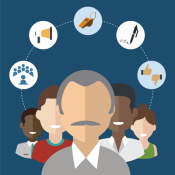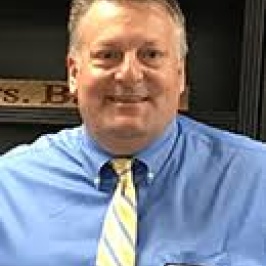Critical Information
The number of children ages 3 to 17 struggling with anxiety or depression rose by 1.5 million between 2016 and 2020. Educators trained in resilience will fortify their students and raise their potential for learning.
Two modes for promoting student resilience
Synchronous solutions…
include facilitated small group discussion, coaching, workshops, and more. Our unique web events include live group therapy, humor workshops to infuse fun into the classroom and even live events with comedians. Enjoy the video example.
Asynchronous solutions…
include on-demand video engagements on a range of topics from autism to dealing with difficult students. Faculty (and parents) can learn the rubric for developing greater resilience, will pass along this learning to students. Please enjoy this video montage on student engagement from our on-demand video library.
On-demand virtual engagements

Class Climate & Learning Support Part I
It can be challenging working with students who have different ways of learning and processing information. Learn how to accommodate a range of learning styles to reduce resistance and build success.

Class Climate & Learning Support Part II
Practical tips to engage and sustain students’ attention and increase their focus and time-on-task with an emphasis on accommodating a variety of visual and auditory needs.

Class Climate & Learning Support Part III
Continuing to explore ways to accommodate differences in how students learn, this engagement looks at practical, non-disruptive ways to address tactile, movement, and oral-motor needs.

Class Climate & Learning Support Part IV
Increase academic success and reduce behavior problems associated with failure. Here are concrete strategies for starting with existing skills and continually challenging students to improve.

Class Climate & Student Behavior Part I
“Classroom Climate” may mean many things to many people, but what is this term really about? Dr. Jane Bluestein shares her big-picture approach to understanding this critical concept.

Class Climate & Student Behavior Part II
Dr. Jane Bluestein explores the behavioral aspects of creating an optimal class climate including an understanding of win-win power dynamics and "winning” in an emotionally safe classroom.

Class Climate & Student Behavior Part III
Dr. Jane Bluestein shares her years of successes and failures behind her win-win classroom philosophy. Learn to create an optimal class climate, through power tools such as choices and consequences.

Class Climate & Student Behavior Part IV
Dr. Jane Bluestein continues her discussion on creating win-win authority relationships in a safe and positive school climate without depending on conditional approval, anger, rules, or threats.
Success Stories

"Whole School Health Through Psychosocial Emotional Learning highlights the importance of relationships, communication, and compassion for others. It presents a critical view in supporting, training, and retaining teachers through the lens of engaging and modeling behaviors that will help our rural students be better civic leaders and community members. My favorite quote from the book gives credit to the author's upbringing and modeling from his parents: 'We must experience the world through others so we can fully engage in educating all children. My father and mother modeled to me and my siblings how to experience the world through somebody else’s eyes, especially if their outer differences stirred up discomfort or displeasure, enriching all lives involved.' I recommend all leaders, teachers, and stakeholders secure their copy as they prepare for school."
Allen Pratt, Executive Director, National Rural Education Association (NREA)